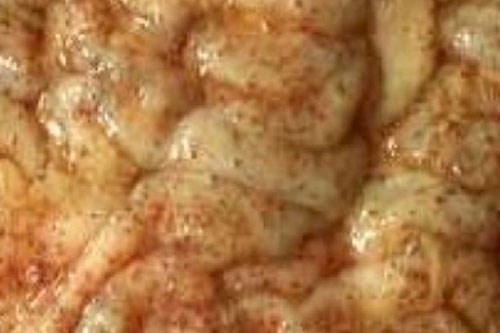
New Saliva Test under Development
20 April 2016
for Encysted Small Strongyle
Moredun Research Institute Press Release
New Saliva Test under Development to Diagnose Equine Encysted Small Strongyle Infection
Scientists at Moredun are currently developing a novel diagnostic blood test for the assessment of encysted small strongyle larval burdens in horses. The diagnostic test detects antibodies to larval cyathostomins encysted in the gut wall of infected horses. Moredun has now entered into a collaboration with Austin Davis Biologics (service providers of EquiSal Tapeworm testing) to develop the test for use with saliva samples. If successful, this would simplify the sample collection process for horse owners, enabling them to take samples directly from their horses for analysis.
Small strongyles (also known as cyathostomins), are a group of parasites commonly found in the gut of grazing horses. Generally, the higher the worm burden, the higher the risk of clinical disease in the horse. The effects of infection with these worms range from a dull coat and weight loss to colic, severe diarrhoea and death. The immature stages (larvae) play an important role in these disease syndromes. Direct methods for the detection of these immature states do not exist, preventing specific diagnosis and targeted treatment of the infection.
For the early stages of this collaborative project, scientists are working with equine veterinary practices to collect matched samples of blood and saliva and, after initial development, saliva test results will be compared with the previously validated blood test.
Group Leader, Professor Jacqui Matthews, who is developing the diagnostic blood test at Moredun commented: “We are delighted to collaborate with Austin Davis Biologics to further develop this test; the company has significant experience in the development of saliva-based tests for the equine market.”
Dr Corrine Austin, of Austin Davis Biologicssaid: “We are very pleased to be working with Moredun on this exciting new project. A saliva test for encysted cyathostomins will provide horse owners, equine veterinarians and animal medicines advisors with a new tool to target the treatment of cyathostomin infections in horses.”
Small redworms are one of the most common and harmful parasites found in horses. They are at their most dangerous in their larval stages when they burrow into the lining of the gut and encyst. In this stage they don’t lay eggs and so their presence can’t be detected by a worm egg count. Untreated these encysted small redworm pose a potentially fatal health risk to horses as they can emerge en-masse from the gut wall in spring, causing loss of condition, digestive upsets and colic. Pictured above is intestinal scarring caused by emerging encysted small redworm.